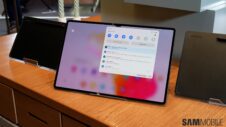There are only two brands that make good high-end tablets: Apple and Samsung. Samsung's latest high-end tablets—Galaxy Tab S7 and Galaxy Tab S7+—are considered the best in the Android ecosystem as they have excellent screens, build quality, performance, software experience, and battery life. However, they can't be viewed in a vacuum. Apple's recently launched iPad Pro lineup offers massive improvements in performance and connectivity, and the company is already known for its tablet ecosystem and longer software support.
Let us check how the Galaxy Tab S7 lineup stands up to the newest iPad Pro models.
Galaxy Tab S7 vs iPad Pro (2021): Display & Speakers
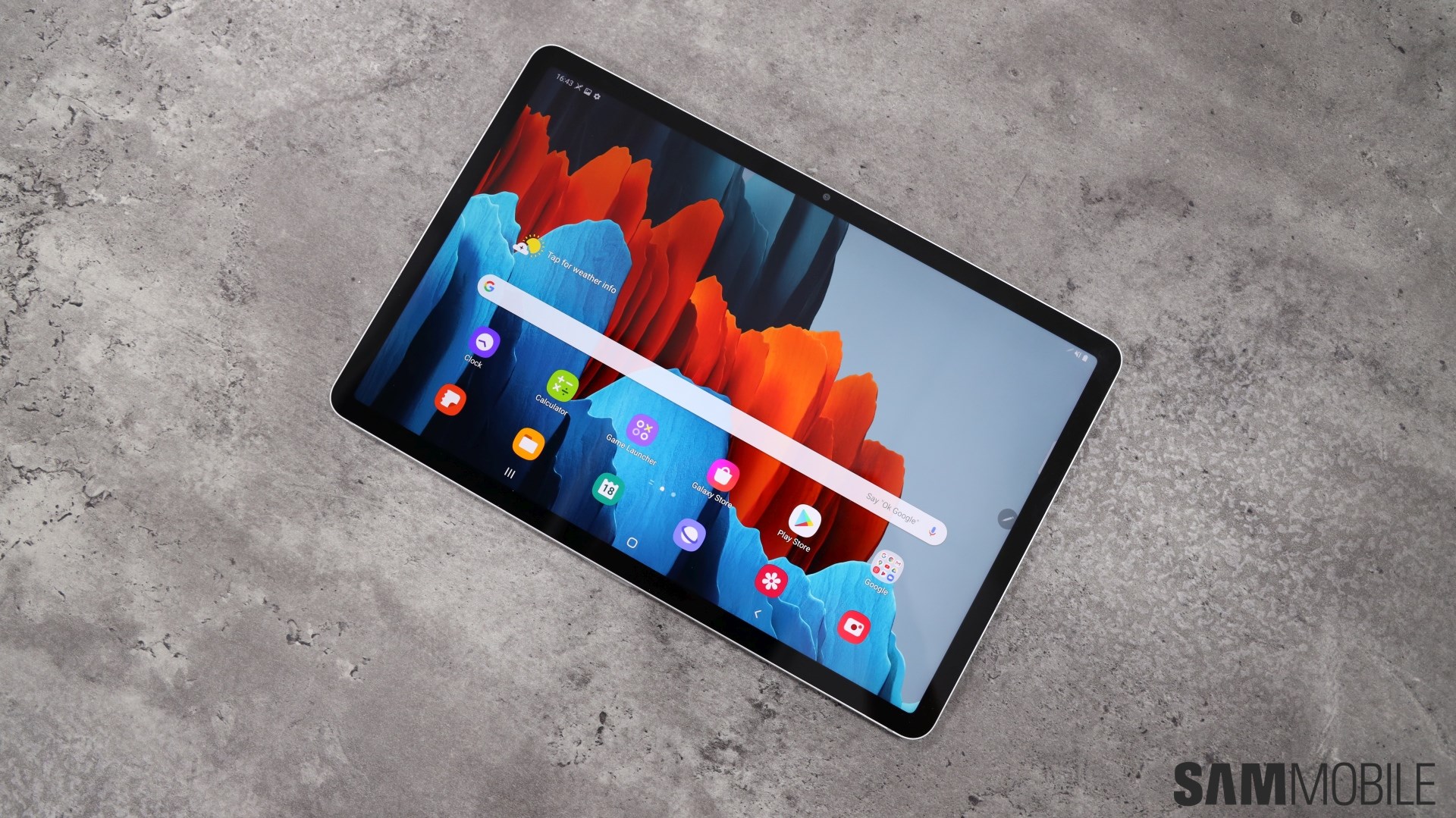
The Galaxy Tab S7 sports an 11-inch IPS LCD display with QHD+ resolution, a 120Hz refresh rate, and HDR10+. Even the iPad Pro 11 (2021) uses a similar 11-inch IPS LCD screen with QHD+ resolution, a 120Hz variable refresh rate, HDR10, and Dolby Vision. Both tablets are pretty well-matched in terms of display and audio quality. However, we prefer the Galaxy Tab S7's display for watching videos, thanks to its 16:10 aspect ratio.
The Galaxy Tab S7+ has a 12.4-inch Super AMOLED display with QHD+ resolution, a 120Hz refresh rate, and HDR10+. The iPad Pro 12.9 (2021) sports a 12.9-inch Mini-LED display with QHD+ resolution, a 120Hz variable refresh rate, HDR10, Dolby Vision, and a peak brightness of 1,600 nits. The Galaxy Tab S7+ and the iPad Pro (2021) use very different display technologies. It's very close, but despite the latter's extremely high brightness levels, I would still prefer the Galaxy Tab S7+'s display due to its infinite contrast ratio, deeper blacks, and vibrant colors. An OLED display is great for all types of use cases.
All these tablets feature quad-speaker setups for immersive audio, but they all lack a dedicated headphone jack. So, it's a tie on the audio front, but Samsung's tablets have slightly better screens, especially for those who want to watch videos. For productivity, though, the iPad's 4:3 aspect ratio offers more screen real estate and it can fit more text.
Winner: Galaxy Tab S7
Galaxy Tab S7 vs iPad Pro (2021): Performance
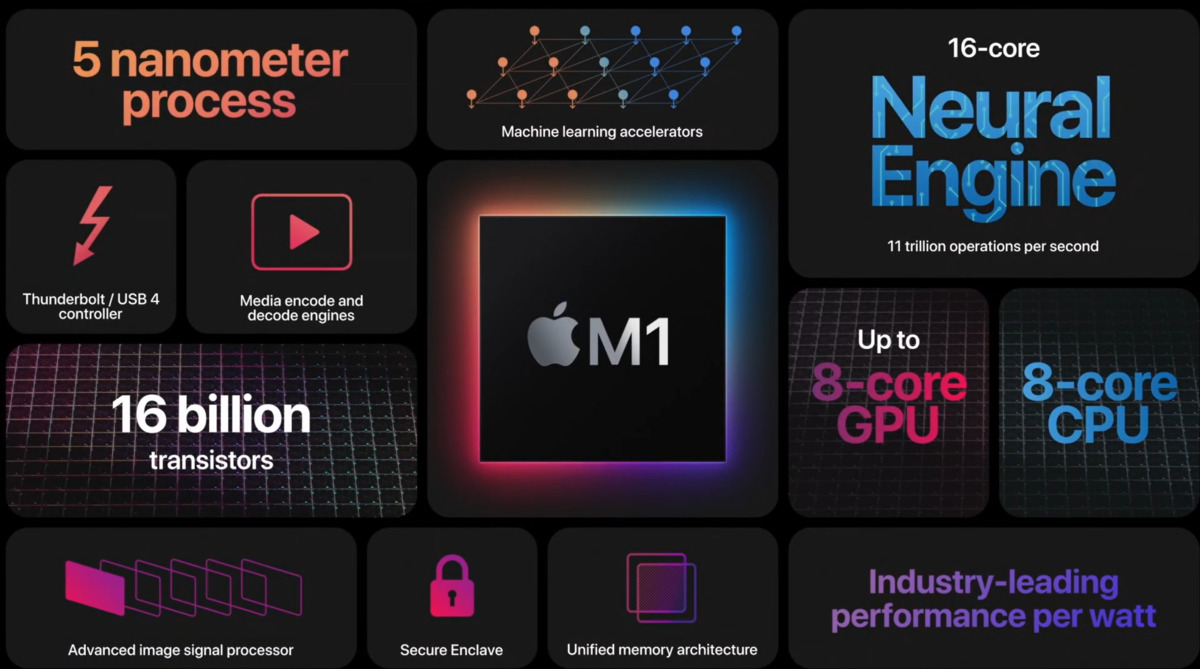
The Galaxy Tab S7 and the Galaxy Tab S7+ use the Snapdragon 865+ processor. The 7nm chipset offers good performance for gaming, productivity, and everything else. However, it is nowhere close to the raw performance of Apple's M1 processor that is used in the latest iPad Pro lineup. The 5nm M1 chipset is truly a marvel, and tests have shown time and again that Apple's ARM-based processor beats many other desktop-grade chipsets from AMD and Intel in both single and multi-core CPU tests. In Geekbench 5, the M1's single-threaded performance is better than even AMD's best desktop processor, the Ryzen 5950X. Even its integrated GPU is extremely powerful, and it is fast enough to even play high-end games.
The new iPad Pro lineup handily beats the Galaxy Tab S7 lineup in raw performance. Even if Samsung equips its upcoming high-end tablets for 2021 with the Snapdragon 888, it would not be enough to beat the iPad Pro. If Samsung wants to catch up to the new iPad Pro, it needs to do some serious thinking. Maybe it needs to work on its own 5nm Exynos processor with ARM's new architecture that's designed for higher performance compared to usual smartphone and tablet chips. Only time will tell if Samsung can (or even has the intent to) compete with the highest-end tablets from Apple.
Winner: iPad Pro
Galaxy Tab S7 vs iPad Pro (2021): Cameras
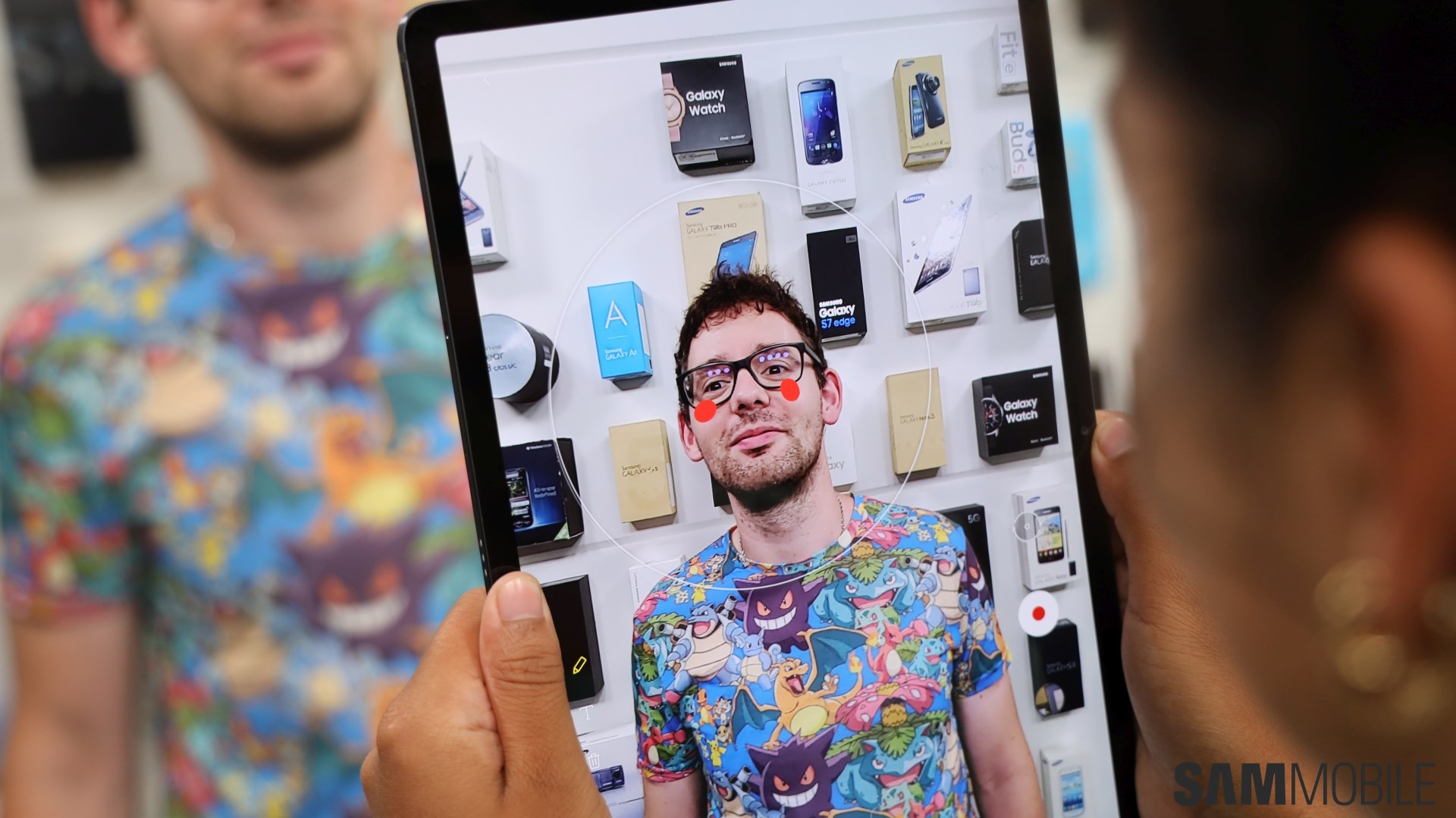
The Galaxy Tab S7 and the Galaxy Tab S7+ feature a 13MP+5MP rear-facing camera setup and 8MP front-facing cameras. Their rear-facing camera can record up to 4K 30fps videos, while the front-facing camera can record 1080p 30fps videos. Both iPad Pro models feature a 12MP+10MP+LiDAR camera setup at the rear and a 12MP wide-angle camera at the front. The iPad Pro's front-facing camera can record up to 1080p 60fps videos, while the rear-facing cameras can record up to 4K 60fps videos.
Going by the camera performance of the iPad Pro (2020), which uses the same rear-facing cameras, Apple's tablets offer better wide-angle and ultrawide image quality as well as video recording. The wide-angle front-facing camera on the iPad Pro is better, too, and offers something called Center Stage, which keeps the subject in the center of the frame (through pan and zoom) during video calls even if they move around. One aspect that's better on the Galaxy Tab S7 is that when it is placed in landscape mode, the front camera is in a perfect position and offers better framing when compared to the iPad Pro.
Winner: iPad Pro
Galaxy Tab S7 vs iPad Pro (2021): Design, Stylus, Security
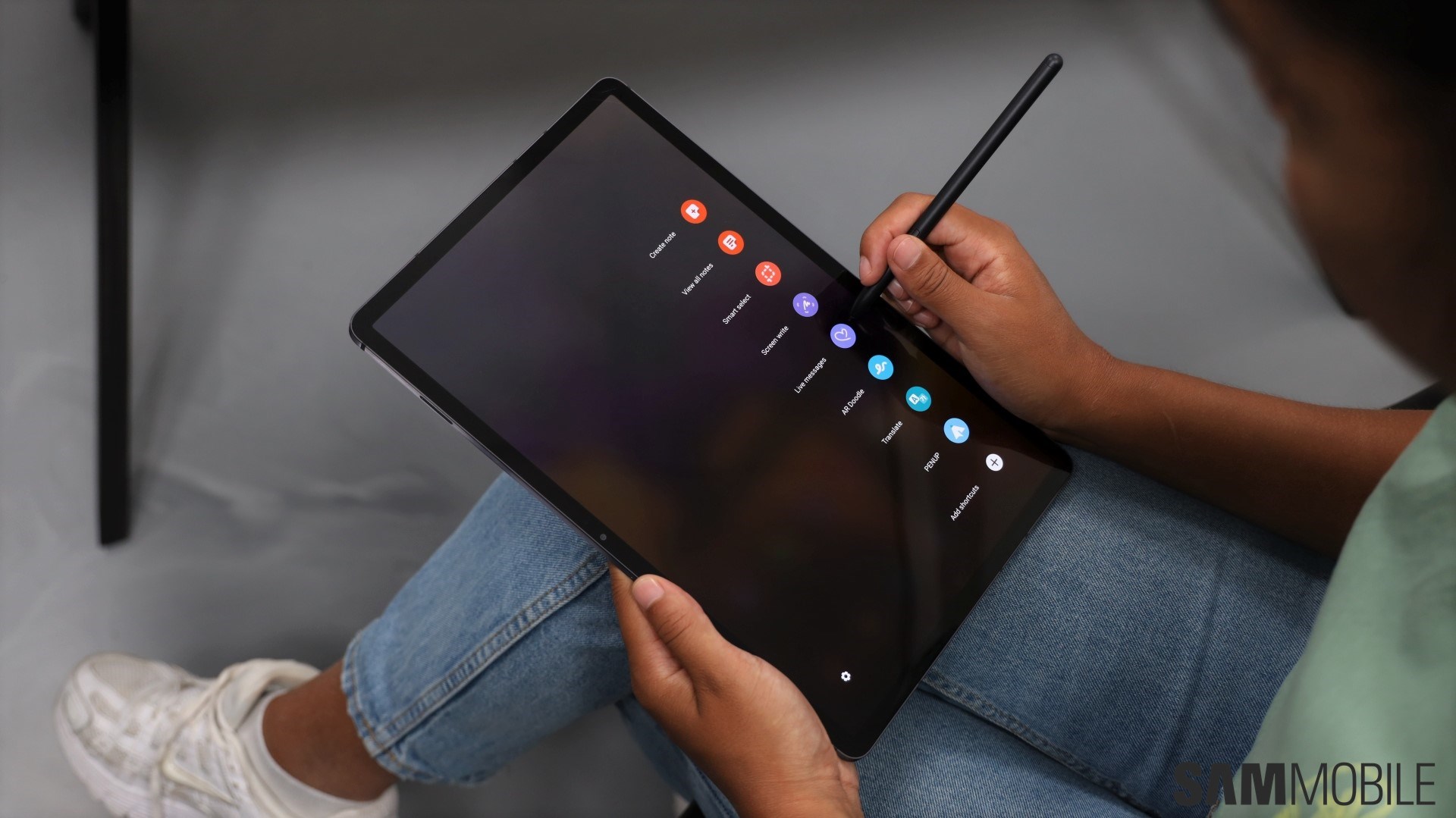
Both Apple and Samsung offer excellent designs and build quality with their high-end tablets. They are all thin, strong, and lightweight. There are just enough bezels around the screen to hold the devices without activating the touchscreen. However, the Galaxy Tab S7 and the Tab S7+ feel compact in the hands due to their 16:10 screens.
The S Pen and the Apple Pencil Gen. 2 offer extremely similar performance for most tasks like drawing and writing. The S Pen can magnetically attach to the Tab S7's body and so can the Apple Pencil Gen. 2 to the iPad Pro. However, the S Pen comes bundled with Tab S7 and Tab S7+. You'll have to shell out more money to buy the Apple Pencil for the iPad Pro. On that front, Samsung takes the cake by offering higher value for the money.
The iPad Pro features a True Depth front-facing camera for 3D face scanning and user authentication. The Galaxy Tab S7 lineup, on the other hand, features a fingerprint reader. A fingerprint reader is easier and faster to use, and you can even allow your family members to register their fingerprints if you're planning to use the Galaxy Tab S7 as a common tablet in your home. Samsung wins here, too.
Winner: Galaxy Tab S7
Galaxy Tab S7 vs iPad Pro (2021): Software Experience, Productivity
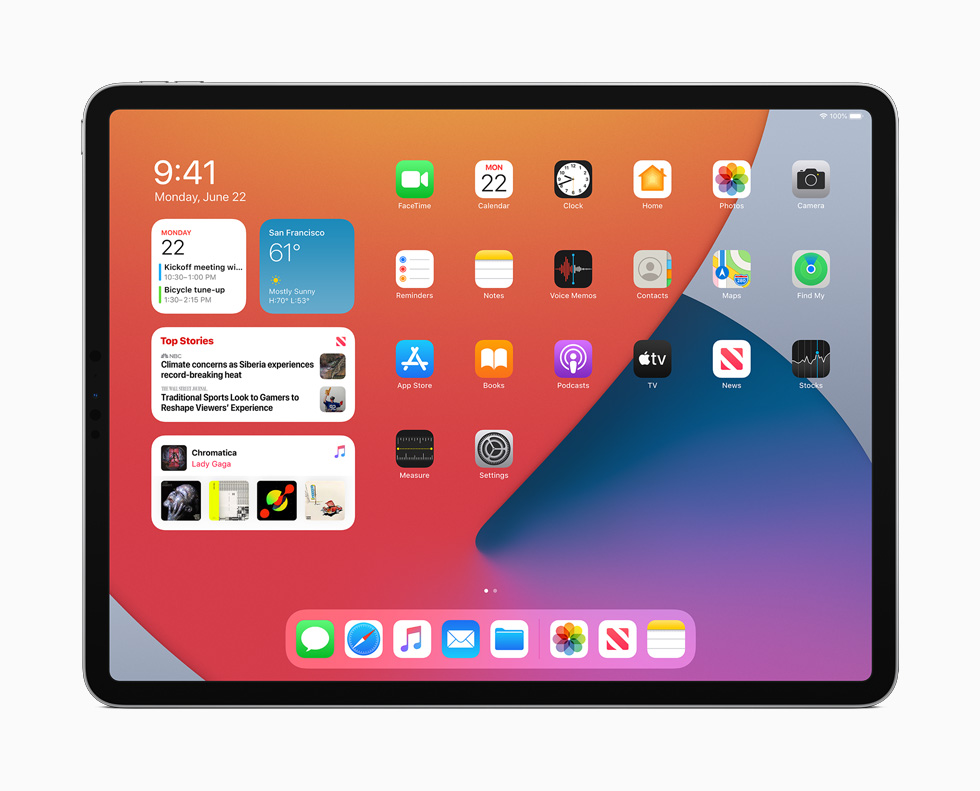
Samsung's latest tablets run Android 11-based One UI 3.1, and they will receive two more Android OS updates and security patches for one year after that. Apple's latest pro-grade tablets run iPadOS 14.5 out of the box, but they will get at least five more iPadOS updates. The iPad Pro lineup also has access to Apple's ecosystem of apps, games, services, and third-party accessories. Granted, iPadOS is a walled garden, but there's no denying the fact that apps on the platform are much more optimized for the bigger screen.
Most iPadOS apps have landscape and multi-pane UI. In comparison, most Android apps are not optimized for the landscape orientation, let alone featuring multi-pane UI. Samsung's and Google's apps work well with the Galaxy Tab S7, but there is a lot more to be done on the third-party app front. Plus, iPadOS is not as handicapped as it used to be in terms of file management and accessory support. With iPadOS 14, it works well with external storage devices, has a usable file manager, and is compatible with most wired and wireless keyboards and mice. We'll talk more about it later. Both companies offer seamless file transfer (Quick Share on Galaxy Tab S7 and AirDrop on iPad Pro) and audio sharing (Music Share/AirPods sharing).
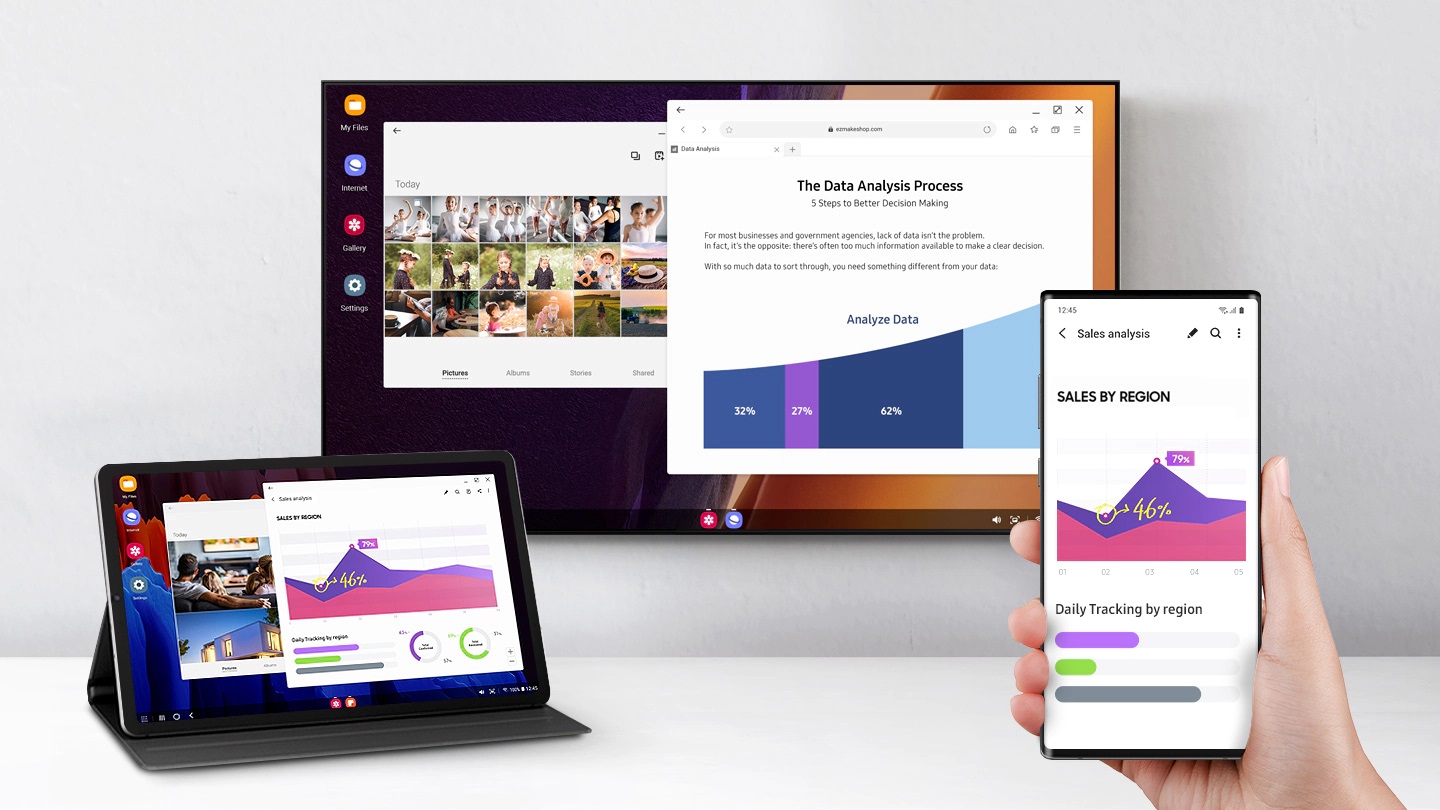
The DeX Mode is a savior for Samsung's tablets, featuring a PC-like desktop, a taskbar, and the ability to run full-screen apps in the landscape mode. Plus, it allows you to run a web browser with a multi-tab layout, similar to PCs. Two apps can be opened side-by-side, complete with drag-and-drop functionality for moving files. However, it has the same problem that the Android tablet ecosystem does when it comes to app support. Not all apps work well in the DeX mode. For example, payment apps like Google Pay have issues related to security and don't function properly.
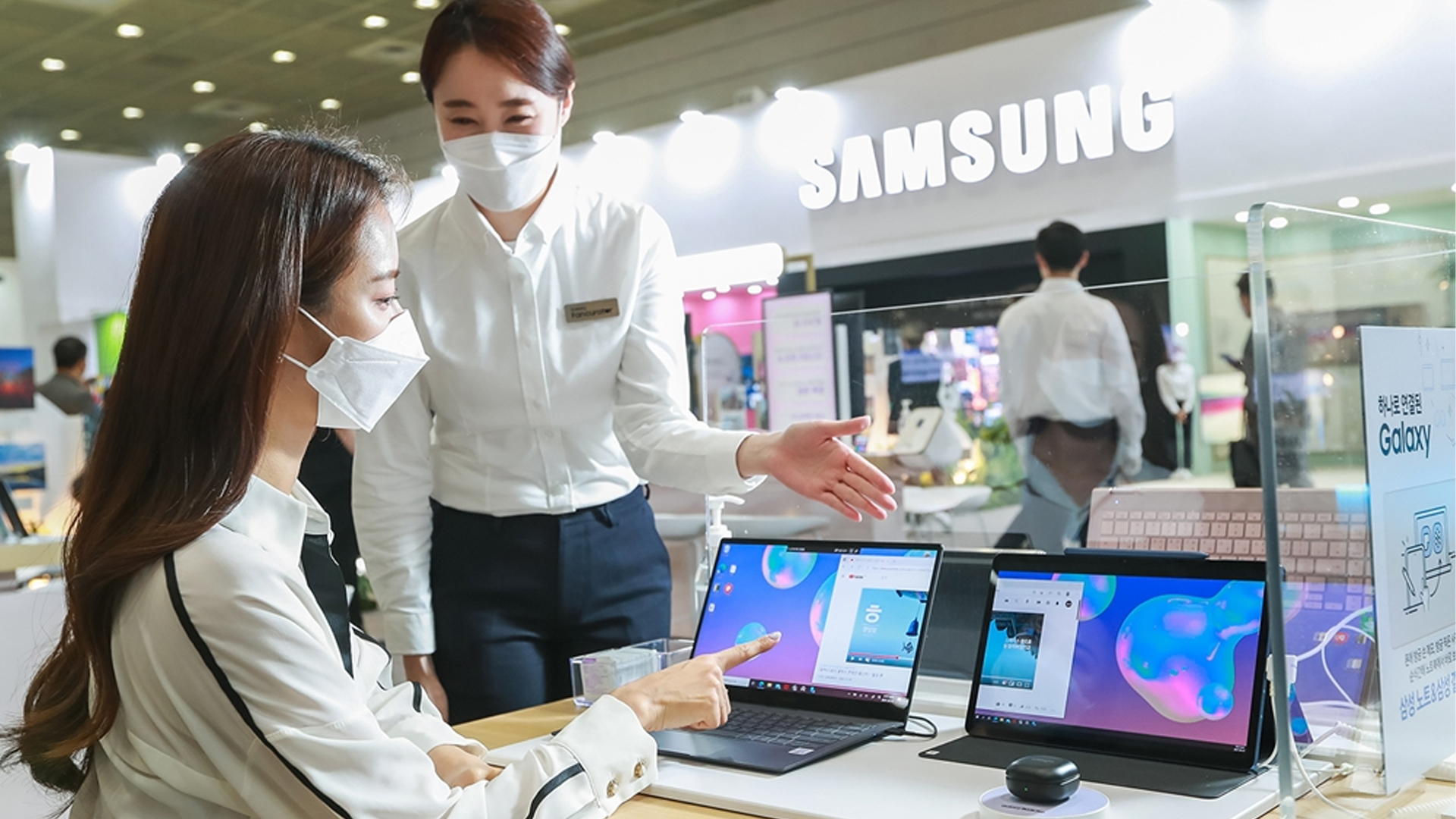
The Second Screen functionality on the Galaxy Tab S7 and the Tab S7+ is quite useful. It works with Windows 10 PCs with WiDi functionality, allowing you to use the Galaxy Tab S7 as a second screen (in duplicate, extend, and second screen only modes). The tablet behaves like a second monitor for your PC. It lets you use the S Pen on the Galaxy Tab S7 to annotate PDFs or images. You can move some windows from the PC's screen to the tablet and use it as a dual-monitor setup. Apple has a similar feature, too, and it is called Sidecar. It works between iPads and Macs, and it works well.
Despite features like DeX and Second Screen, the iPad Pro wins in software experience and productivity aspects because the whole ecosystem of Apple's core apps, third-party apps, and games work well to fully utilize the iPad's big screen.
Winner: iPad Pro
Galaxy Tab S7 vs iPad Pro (2021): Connectivity, Expansion
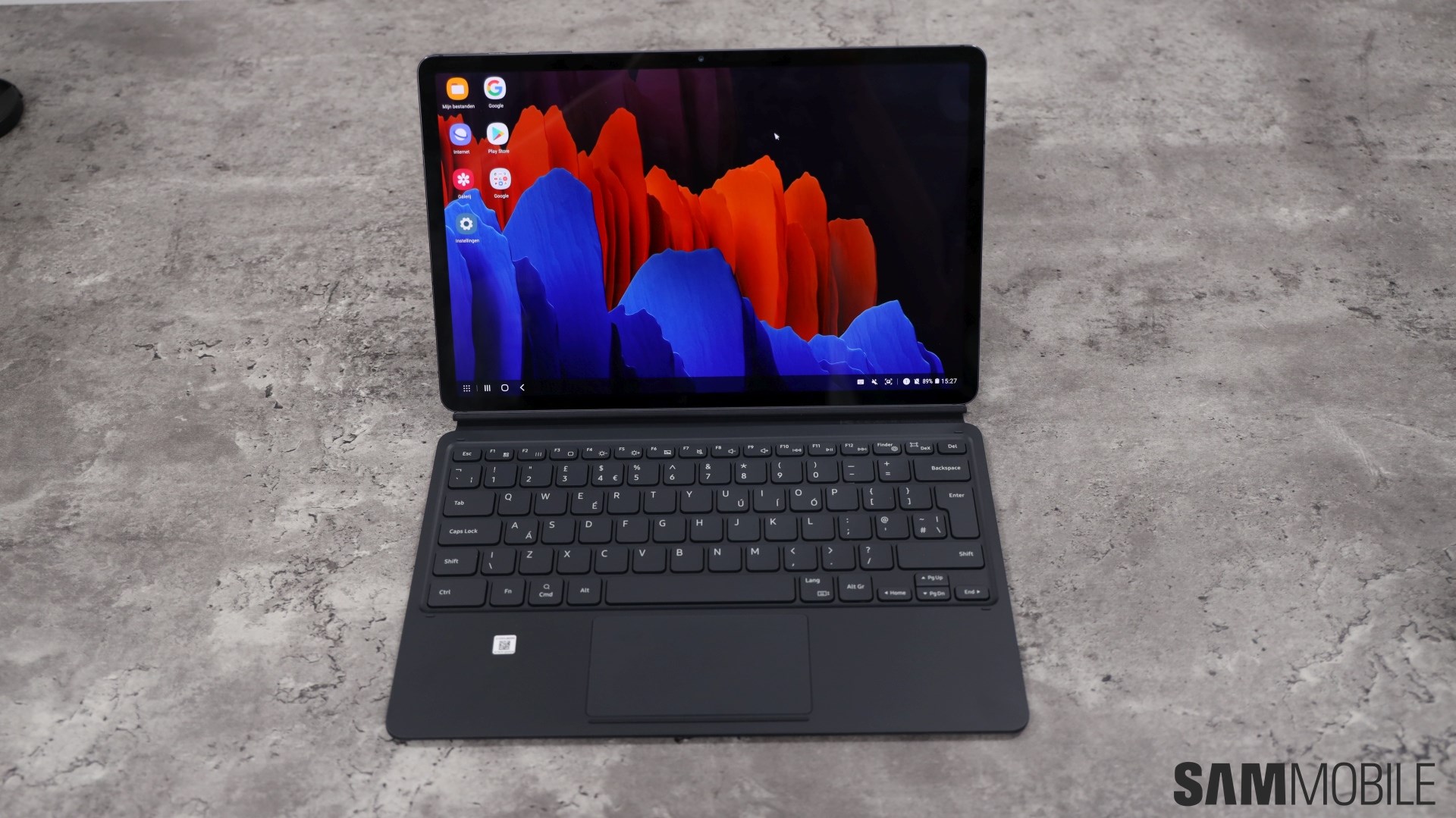
All four tablets feature GPS, mmWave and sub-6GHz 5G (optional), Wi-Fi 6, Bluetooth 5.0, and Type-C ports. However, the new iPads feature Thunderbolt 4 connectivity, which is 4x faster (40Gb/s) compared to USB 3.2 Gen 2's 10Gb/s transfer speeds. This wider bandwidth opens up a lot of possibilities, including higher-resolution video output and faster data transfer speeds when connecting to external storage devices. The Galaxy Tab S7 and the Tab S7+ can drive 4K screens, while the new iPad Pro models can drive 6K screens. This could be important for those who actively use a tablet in their workflow or entirely depend on them for getting things done on the go.
The Galaxy Tab S7 and the Tab S7+ a trick up their sleeves as well. They feature a microSD card slot, which means they don't have to depend on a USB accessory just to transfer images, videos, documents, or other files from other devices. Android 11-based One UI 3 on the Galaxy Tab S7 offers much better support for file management compared to the iPad Pro.
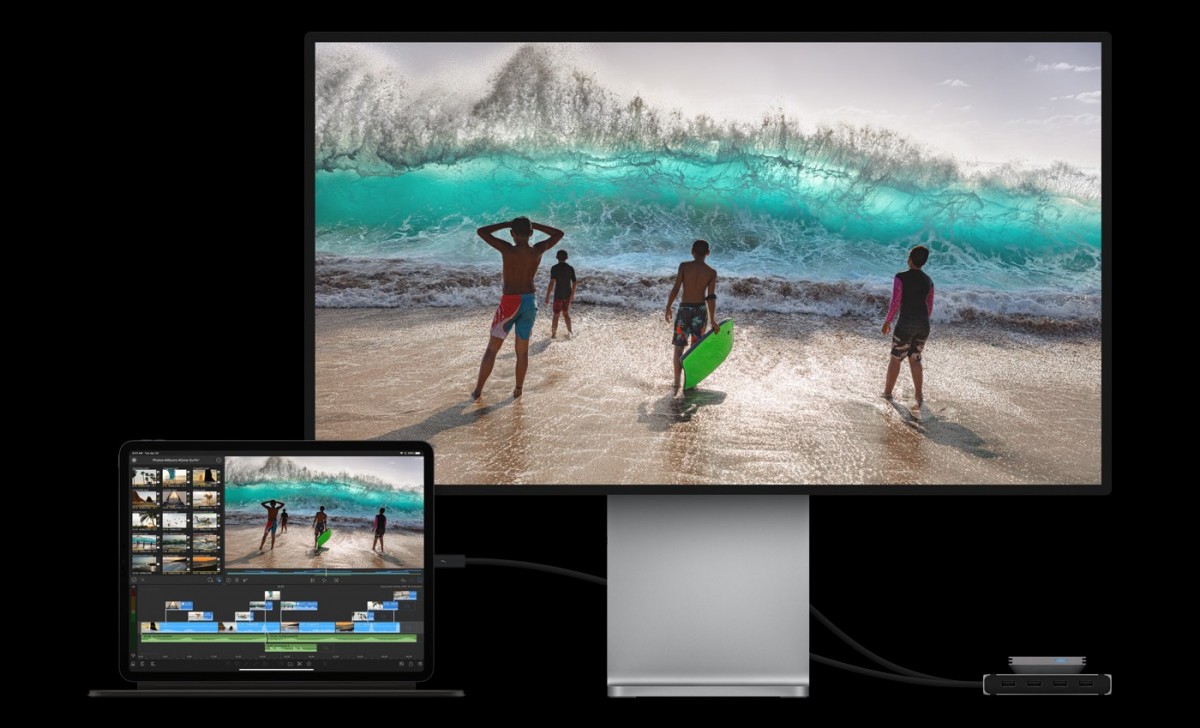
All the tablets are compatible with wired (via USB C) and wireless (via Bluetooth) keyboards and mice. The Galaxy Tab S7 and the Galaxy Tab S7+ feel more like PCs, offering users a more known experience when using keyboards and mice. The iPad Pro can connect to compatible TVs and displays wirelessly via AirPlay 2 for screen mirroring and media streaming, while the Galaxy Tab S7 lineup can connect to any Chromecast or Miracast-compatible TVs for wireless screen mirroring. For media streaming, it can use Chromecast or Tap Share (for Samsung TVs).
Overall, there's no clear winner in terms of connectivity, and it all depends on your use case and which ecosystem you're invested in.
Winner: Tie
Galaxy Tab S7 vs iPad Pro (2021): Battery Life
The Galaxy Tab S7 and the Galaxy Tab S7+ are powered by 8,000mAh and 10,090mAh batteries, respectively. The iPad Pro 11 is powered by a 7,538mAh battery and the iPad Pro 12.9 has a 10,800mAh cell. The Galaxy Tab S7 and the iPad Pro 11 offer similar battery longevity on a single charge, and so do the Galaxy Tab S7+ and the iPad Pro 12.9. All the tablets have USB Type-C ports and feature fast charging. However, Samsung's tablets offer faster charging, at 45W when compared to 18W on the iPad Pro.
Winner: Tie
Galaxy Tab S7 vs iPad Pro (2021): Pricing, Value
The Galaxy Tab S7 and the Tab S7+ are quite cheaper compared to the iPad Pro 11 and the iPad Pro 12.9. Apple's tablets are anywhere between $150 and $520 costlier than comparable Galaxy Tab S7 models. It is also cheaper to get a higher storage tier of the Galaxy Tab S7. Plus, you can always add a microSD card for storage expansion. Samsung is the absolute winner in terms of pricing and value.
| Storage | Galaxy Tab S7 (Wi-Fi) | Galaxy Tab S7 (Cellular) | Galaxy Tab S7+ (Wi-Fi) | Galaxy Tab S7+ (Cellular) |
| 128GB | $549 | $849 | $749 | $1,049 |
| 256GB | $599 | $799 | ||
| 512GB | $679 | $879 | ||
| Storage | iPad Pro 11 (Wi-Fi) | iPad Pro 11 (Cellular) | iPad Pro 12.9 (Wi-Fi) | iPad Pro 12.9 (Cellular) |
| 128GB | $799 | $999 | $1,099 | $1,299 |
| 256GB | $899 | $1,099 | $1,999 | $1,399 |
| 512GB | $1,099 | $1,299 | $1,399 | $1,599 |
| 1TB | $1,499 | $1,699 | $1,799 | $1,999 |
| 2TB | $1,899 | $2,099 | $2,199 | $2,399 |
Winner: Galaxy Tab S7
Galaxy Tab S7 vs iPad Pro (2021): Which is better?
After careful consideration, Samsung's tablets offer better value, but the iPad Pro (2021) offers a better overall experience. The Galaxy Tab S7+ has a better screen, a handy design, faster biometrics, and lower pricing compared to the iPad Pro. However, the iPad Pro offers much faster performance (thanks to the M1 processor), better cameras for both still images and videos, more flexibility with its Thunderbolt 4 port, and more importantly, a better ecosystem of apps, games, services, and accessories.
We are sure that Samsung was hit with some surprises during Apple's iPad Pro announcement, especially the processor and Thunderbolt 4 bits. The company definitely needs to think long and hard this year and do something to match Apple in terms of performance and ecosystem of apps and services. It can either make its own Exynos processor that is in Apple M1's league in terms of performance or collaborate with Qualcomm to develop a custom chipset for its future tablets. For problems related to tablet-optimized apps, it can work with Google and popular third-party app developers to improve their apps for the larger screen and the S Pen.
What do you think about Samsung's tablets in general and the recently announced iPad Pro lineup from Apple? Can Samsung match Apple later this year? Let us know your thoughts in the comments section below.
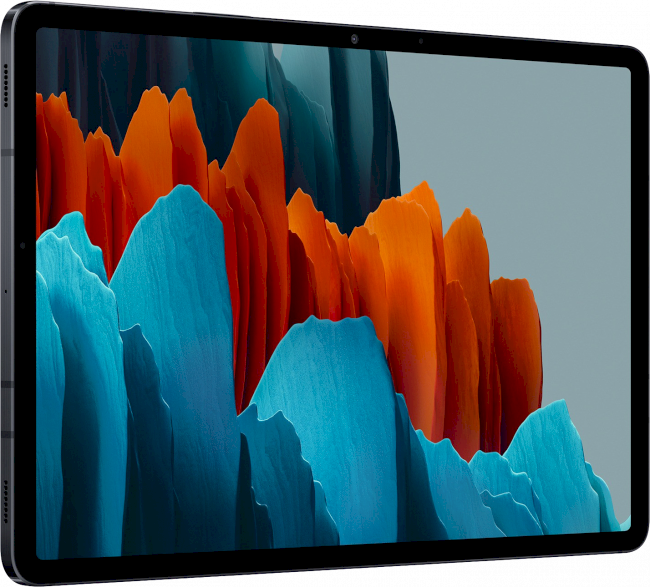
SamsungGalaxy Tab S7 LTE
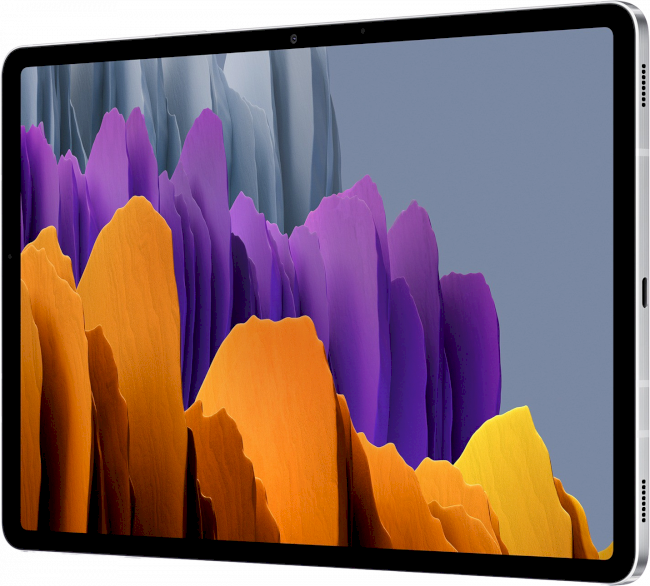
SamsungGalaxy Tab S7 Plus LTE
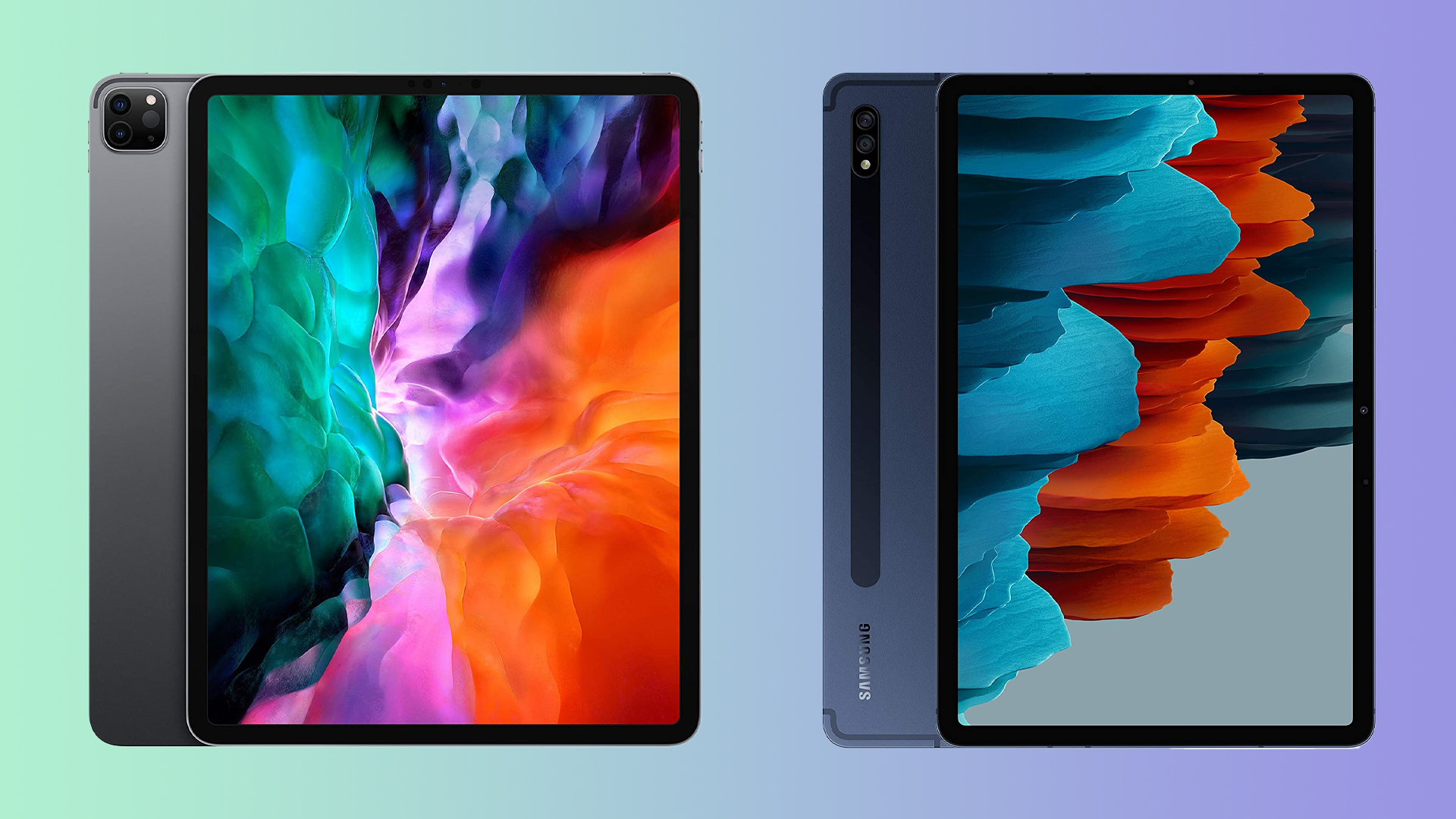
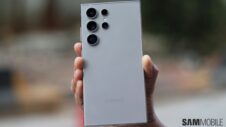
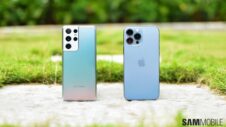
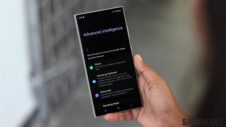
![[Video] 5 amazing tips for using Samsung DeX on a Galaxy device](https://www.sammobile.com/wp-content/uploads/2024/05/Samsung-DeX-226x127.jpg)
